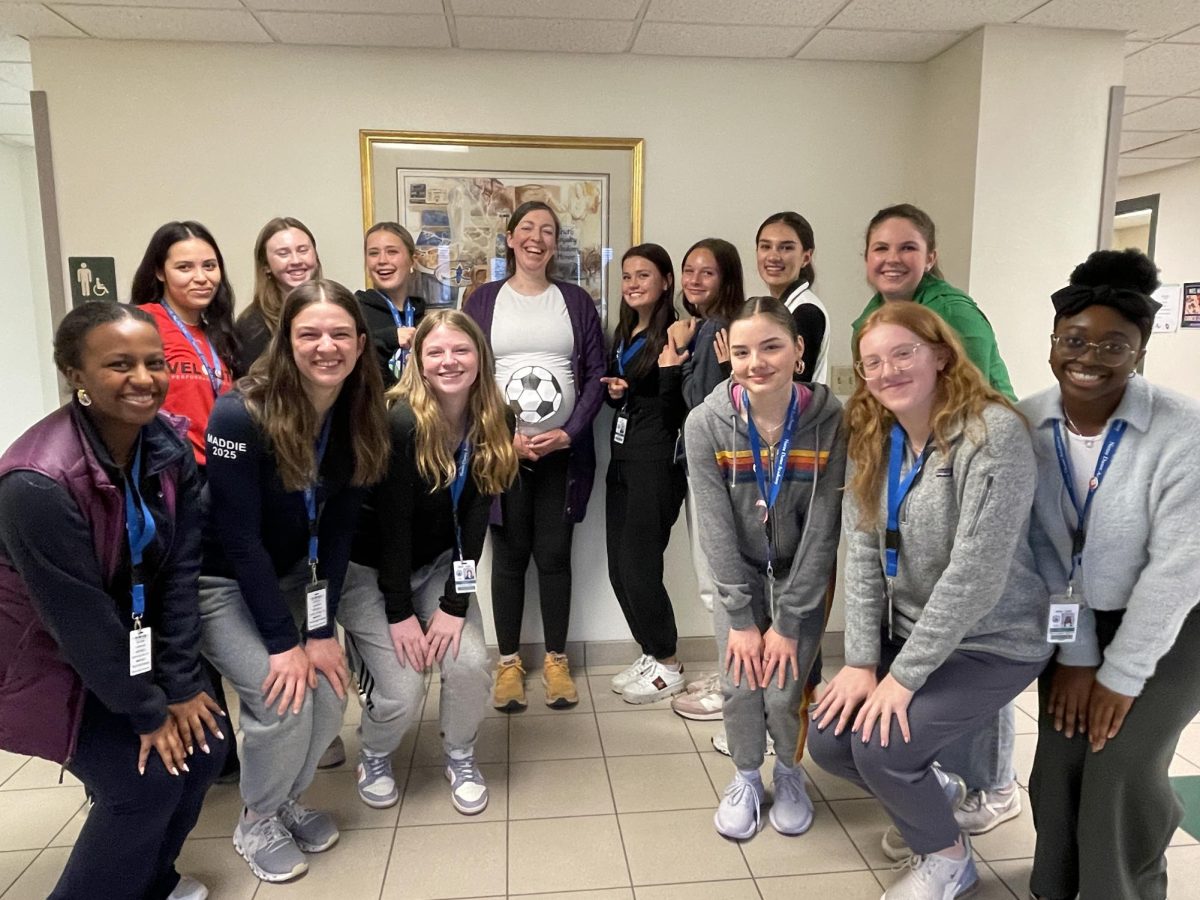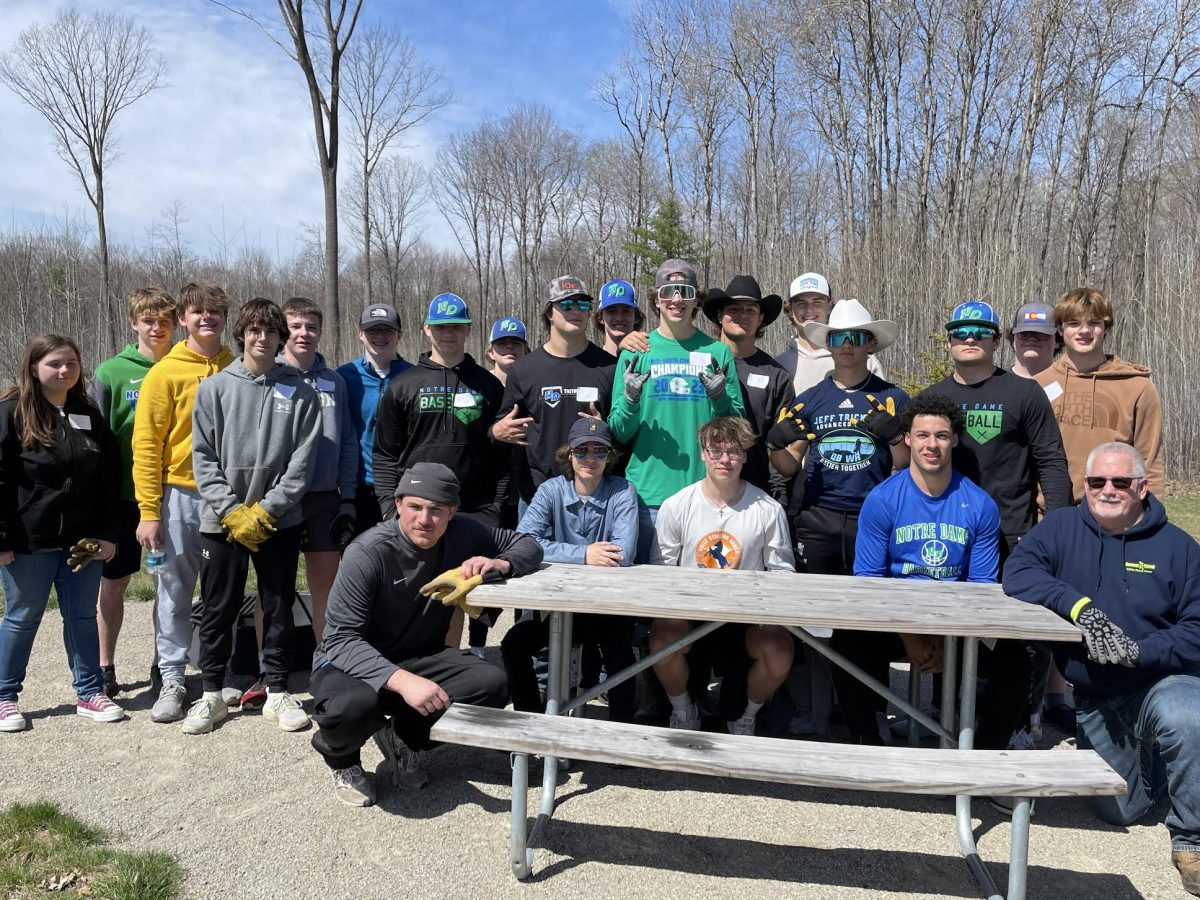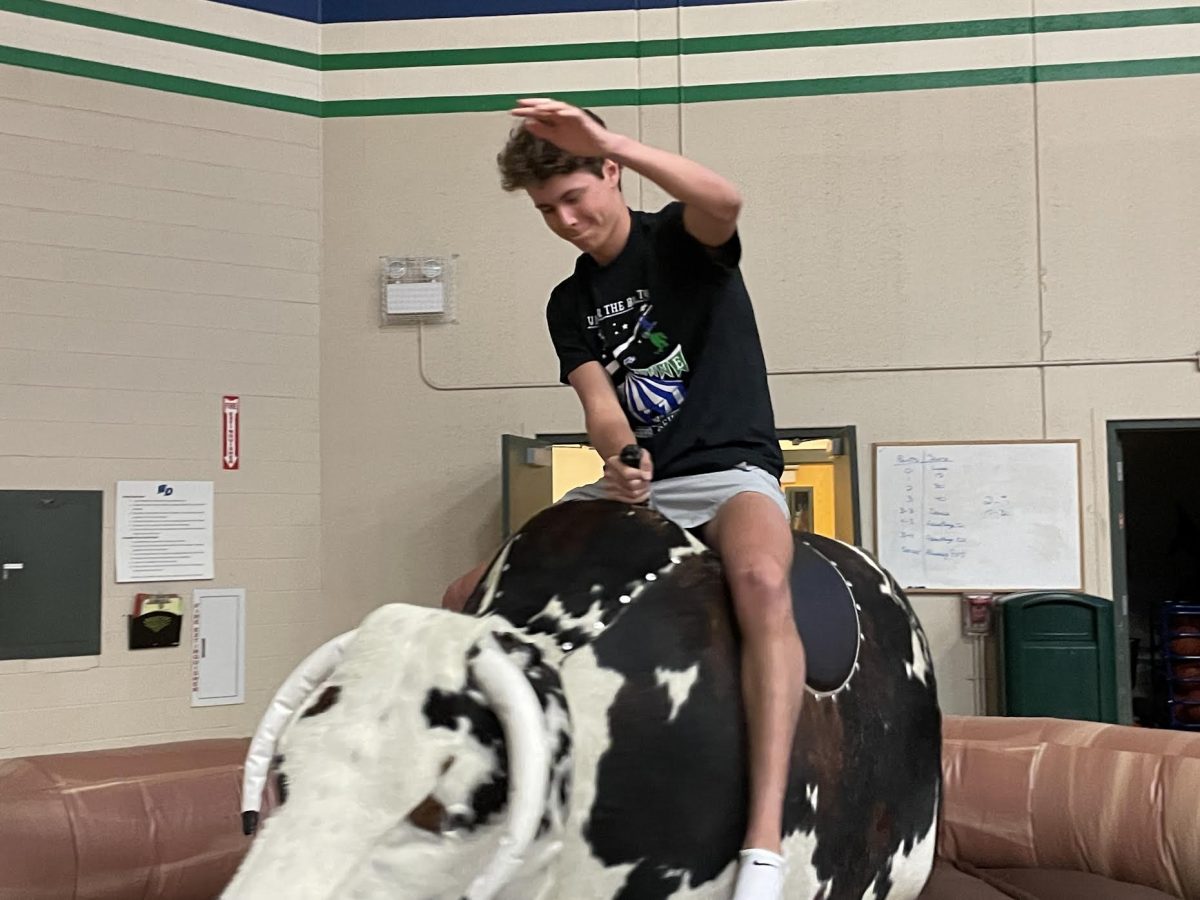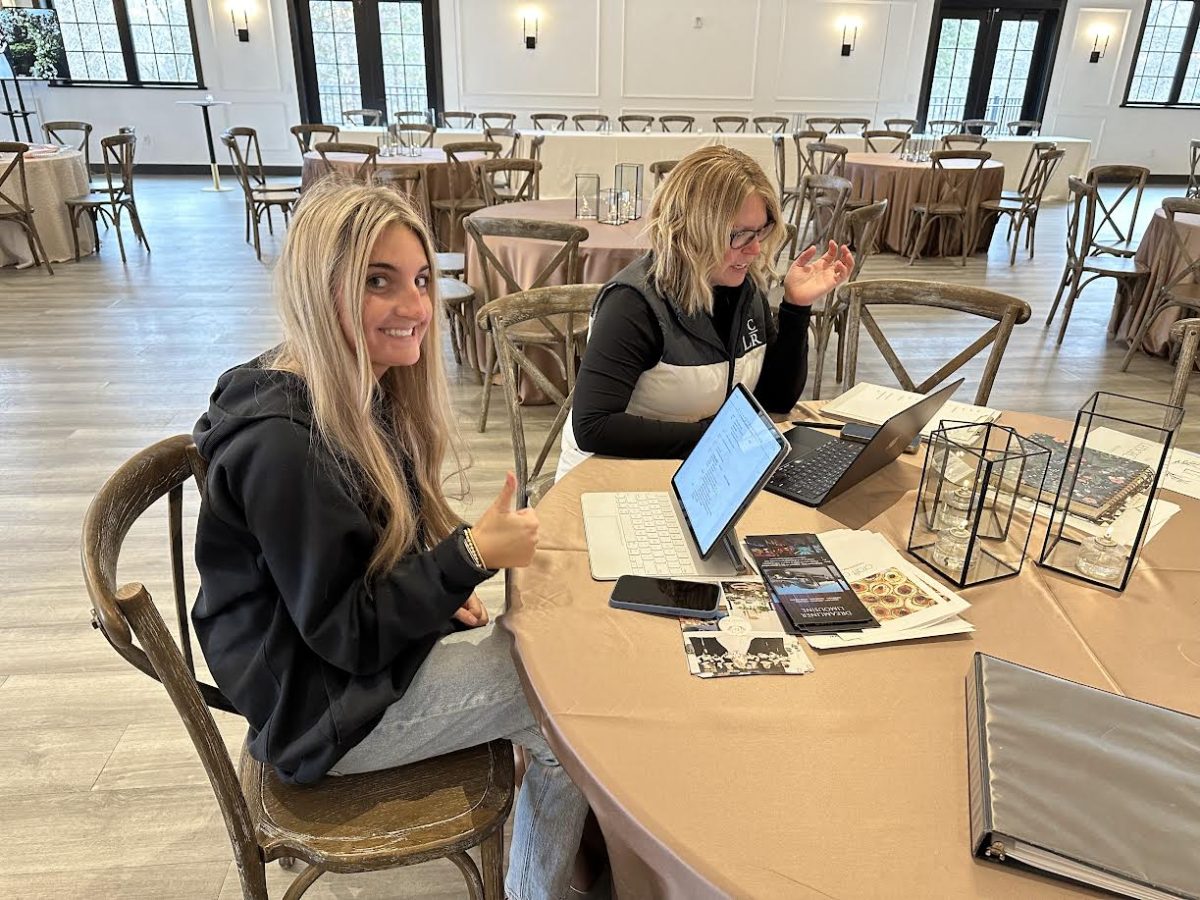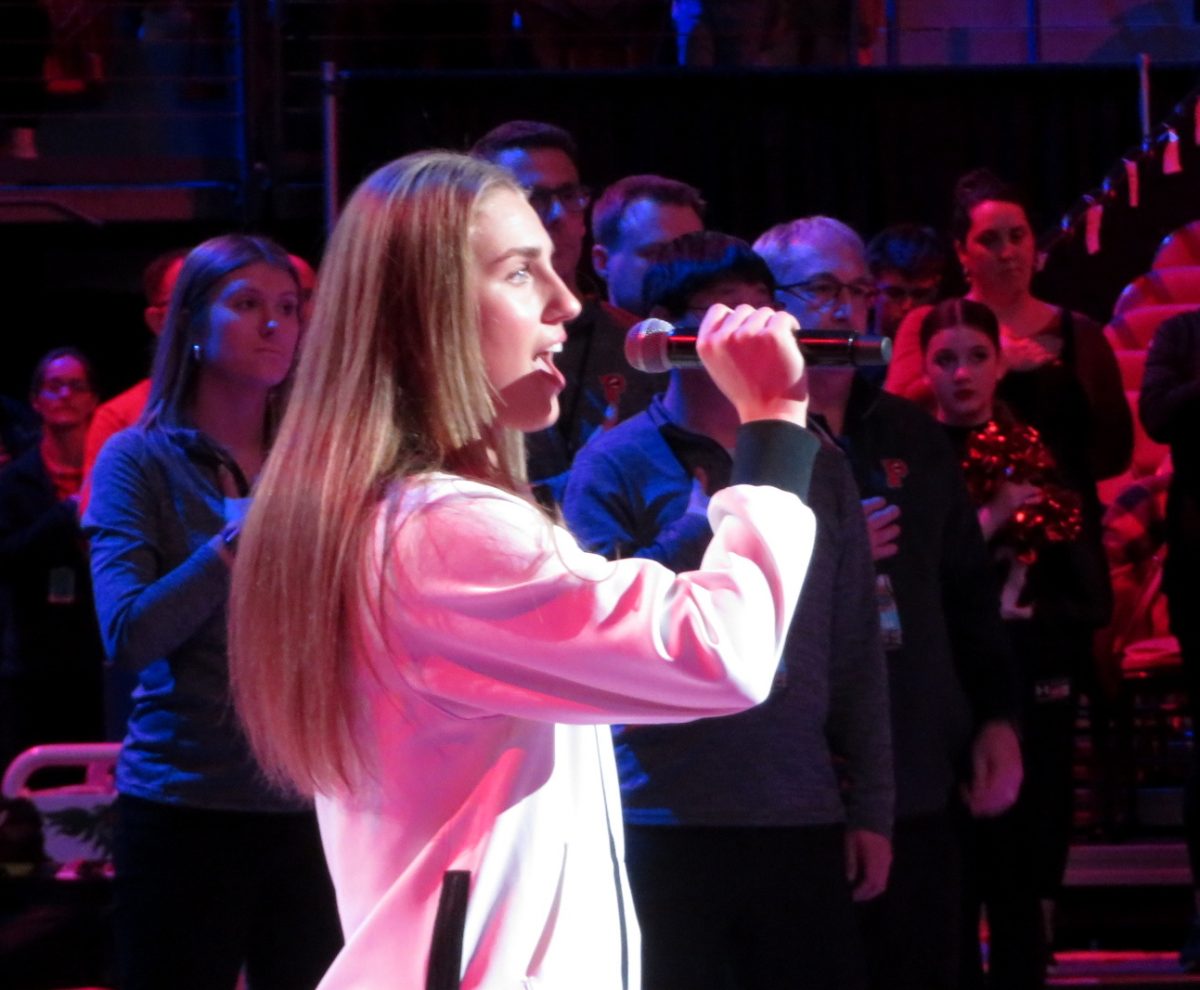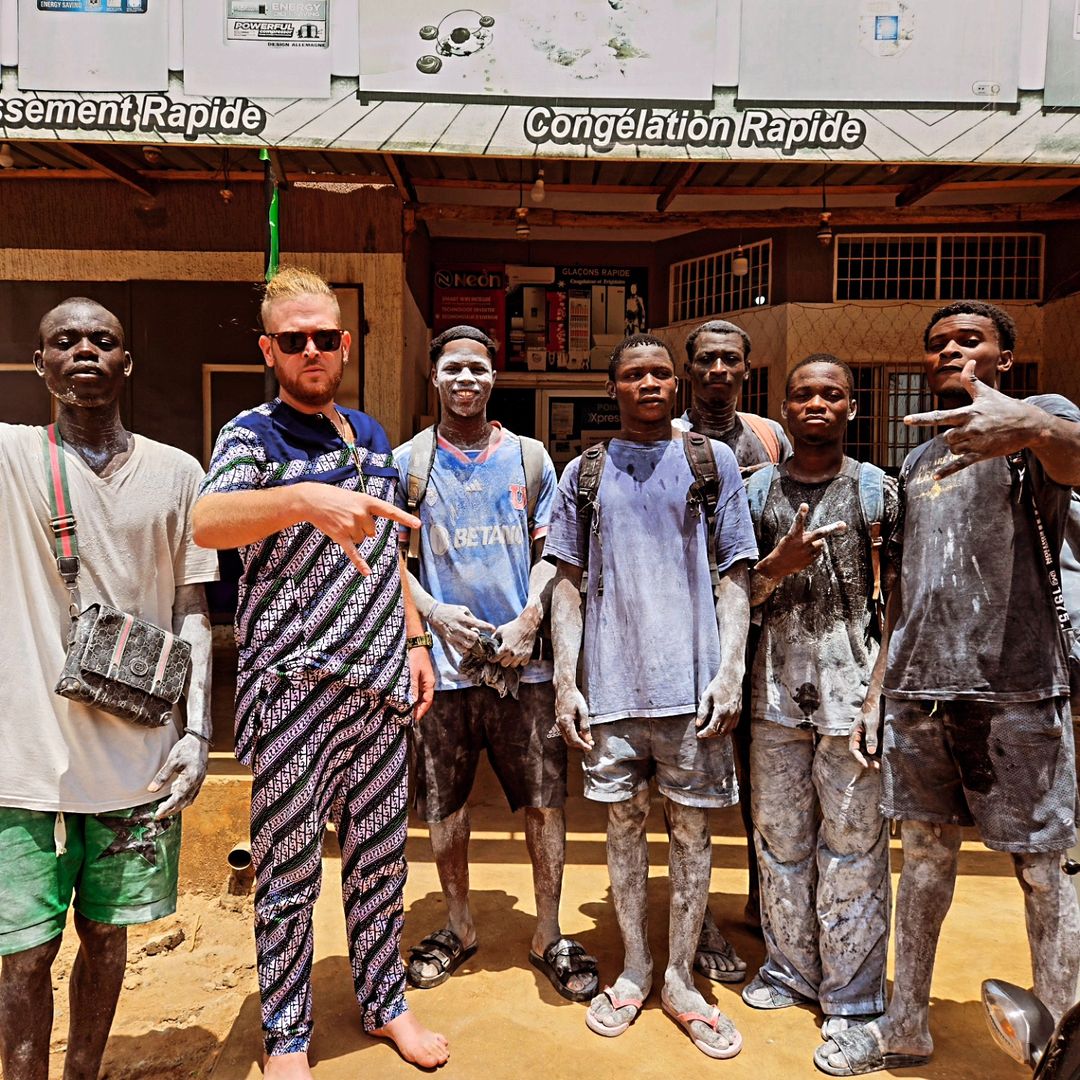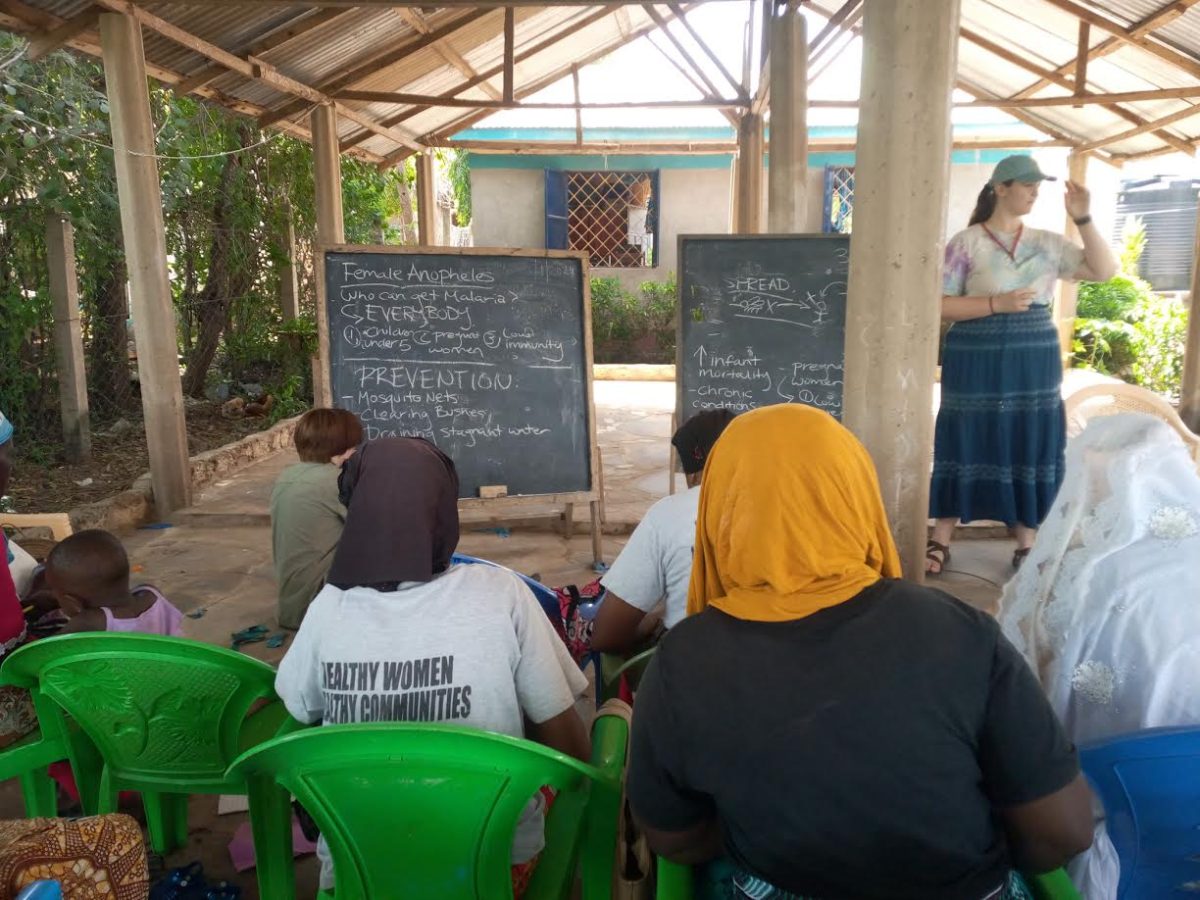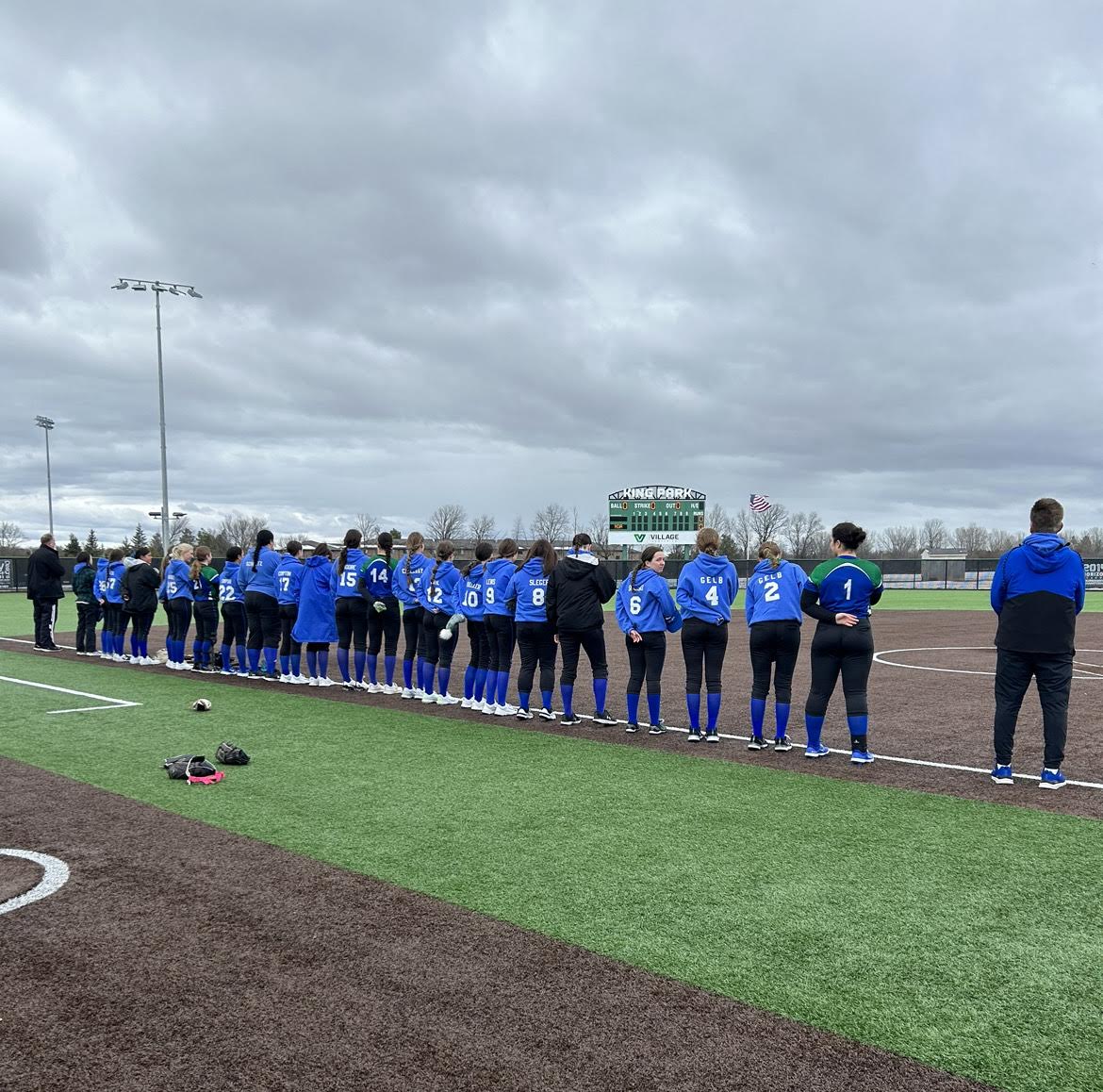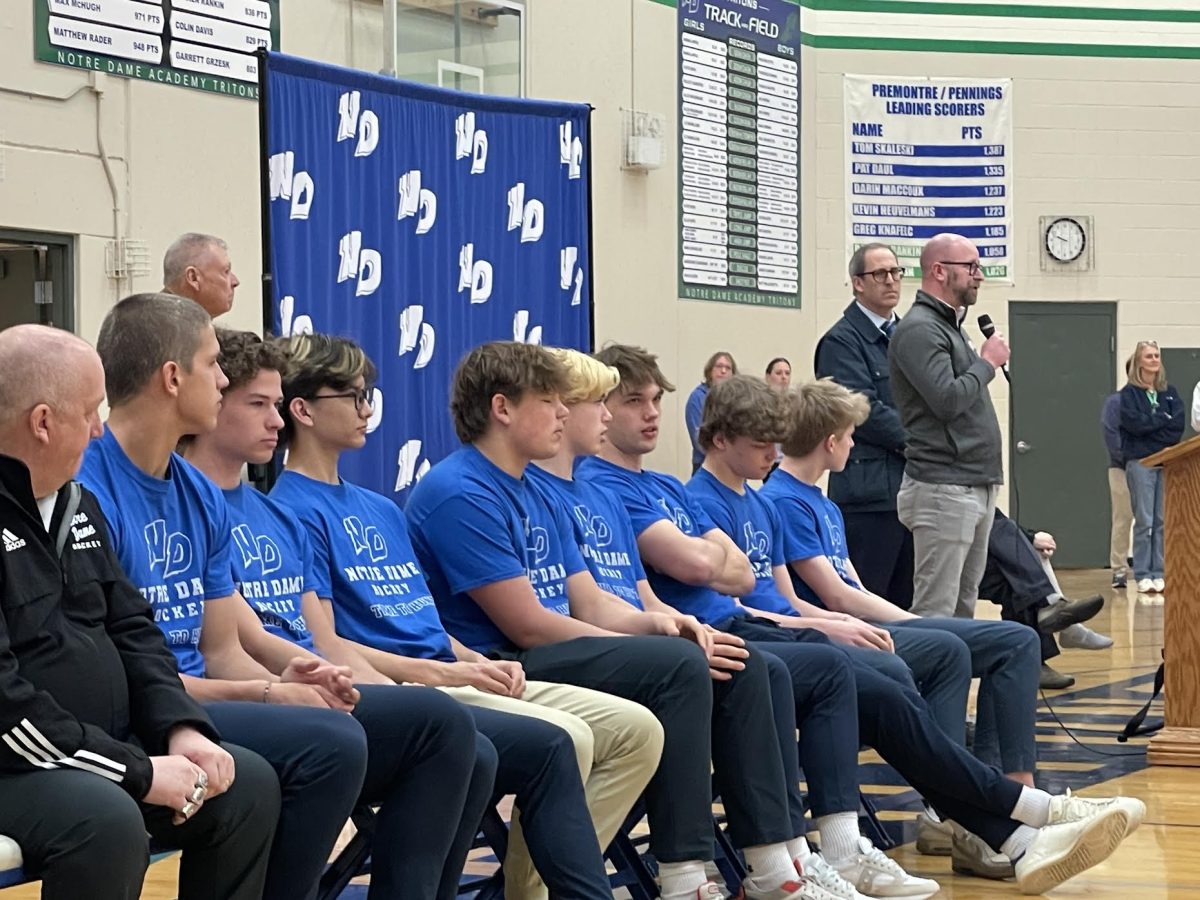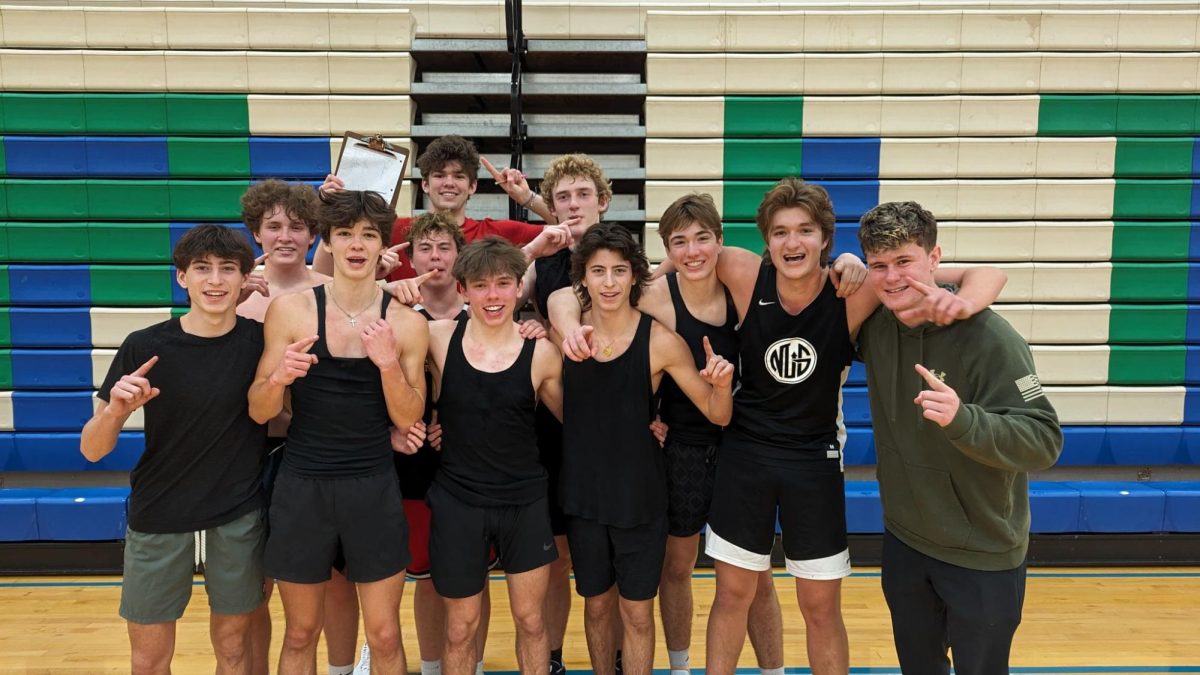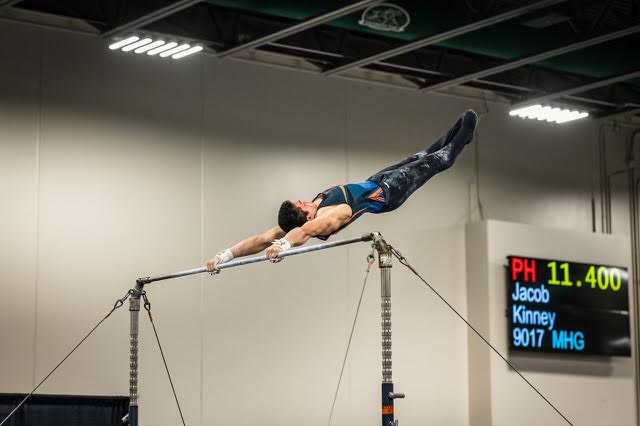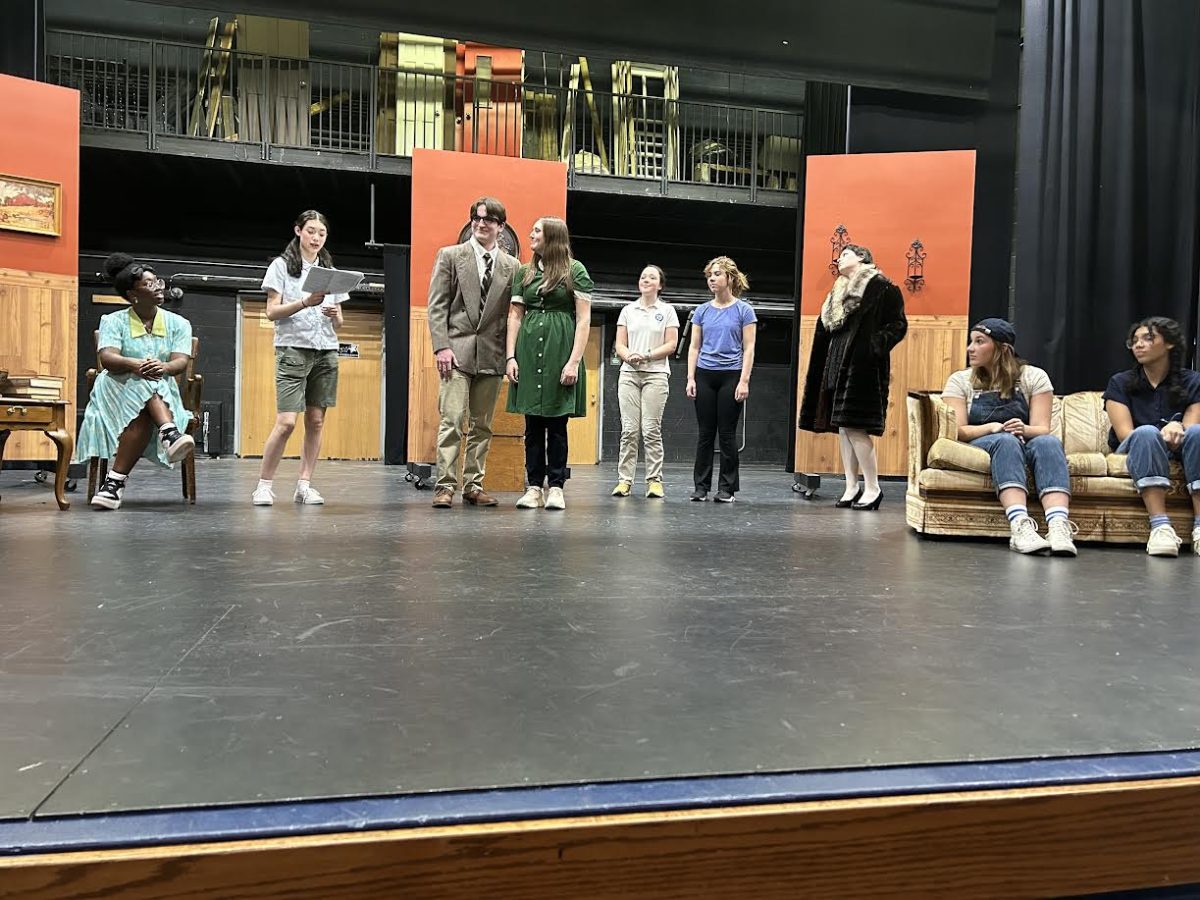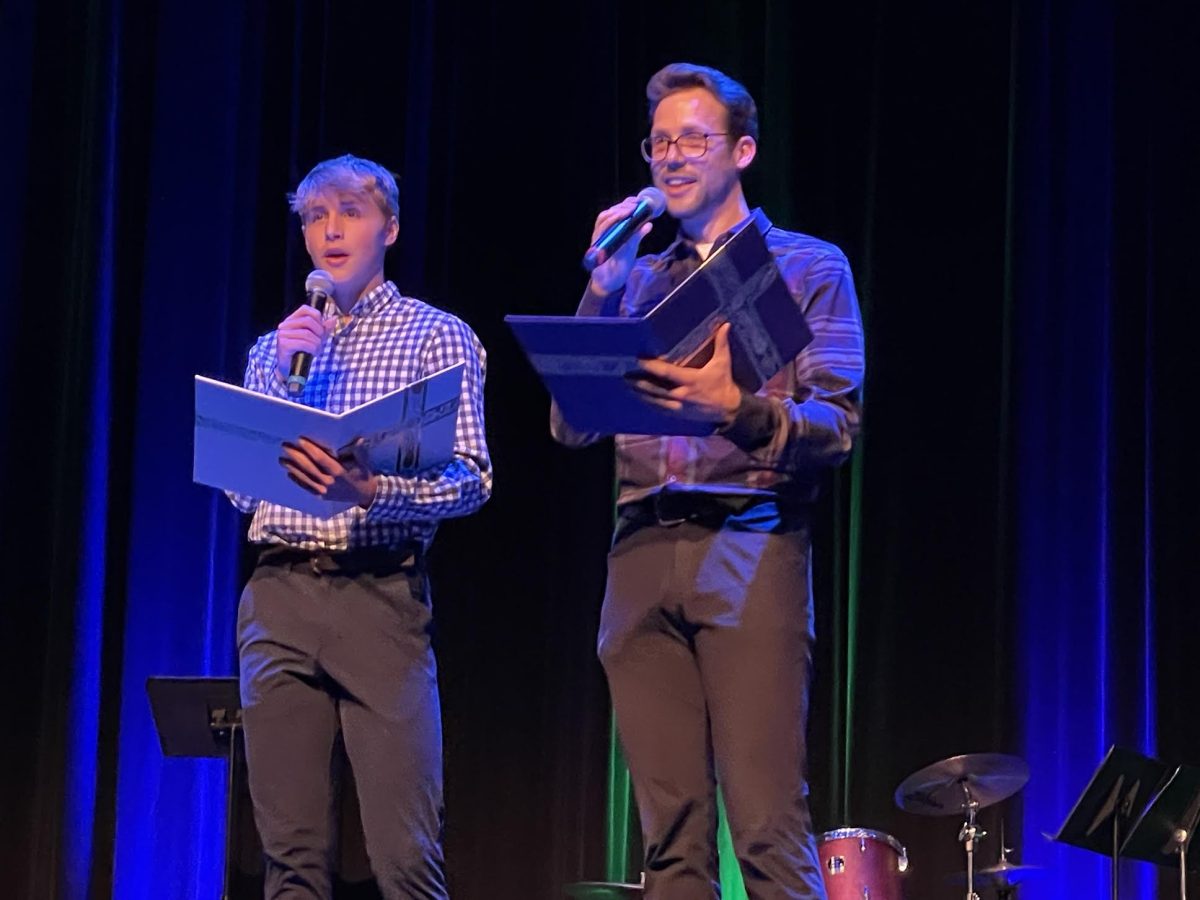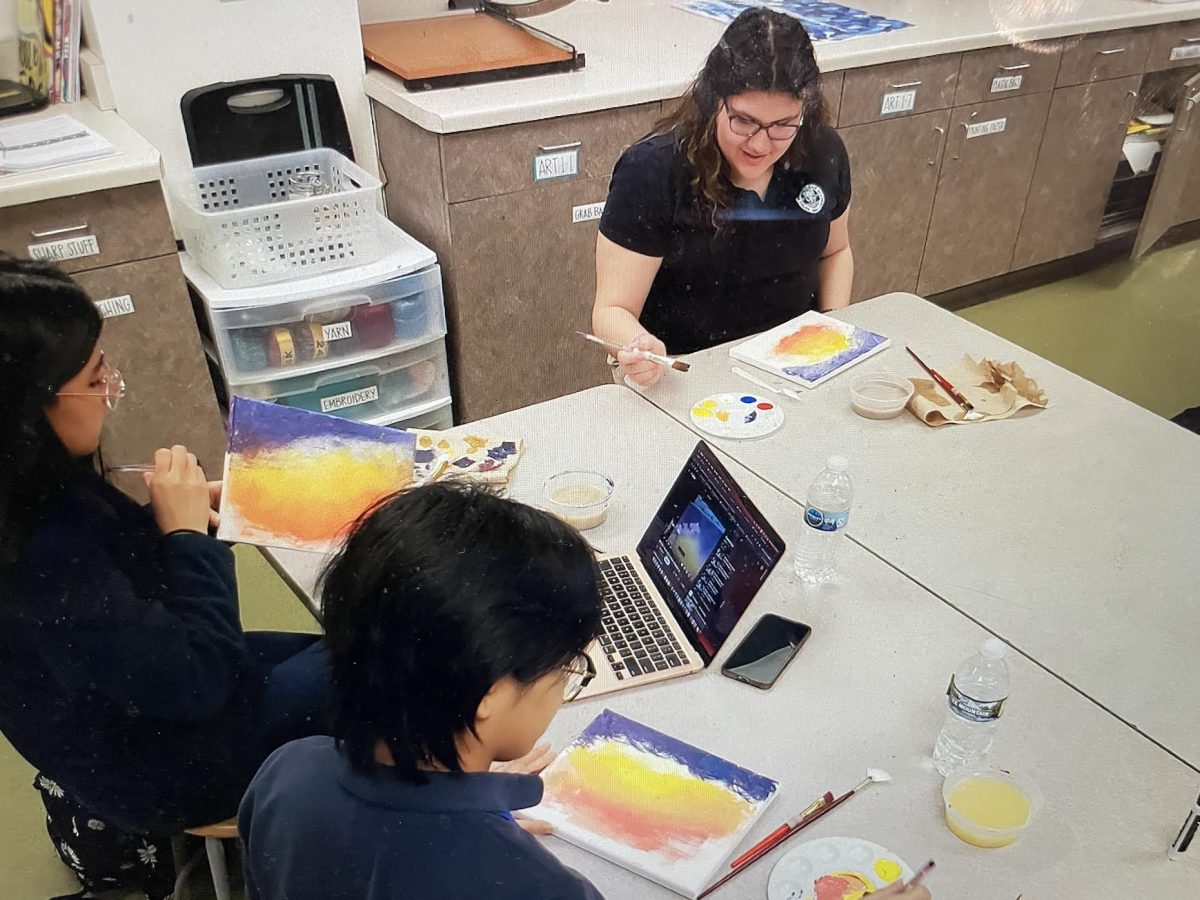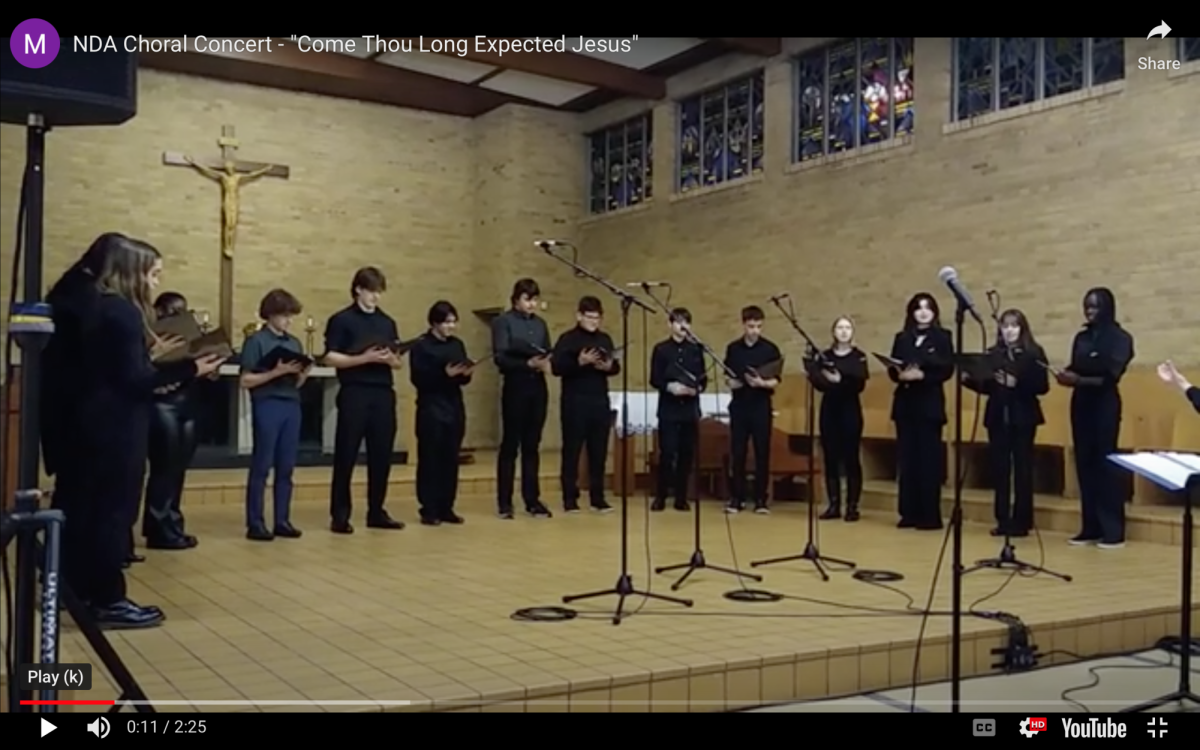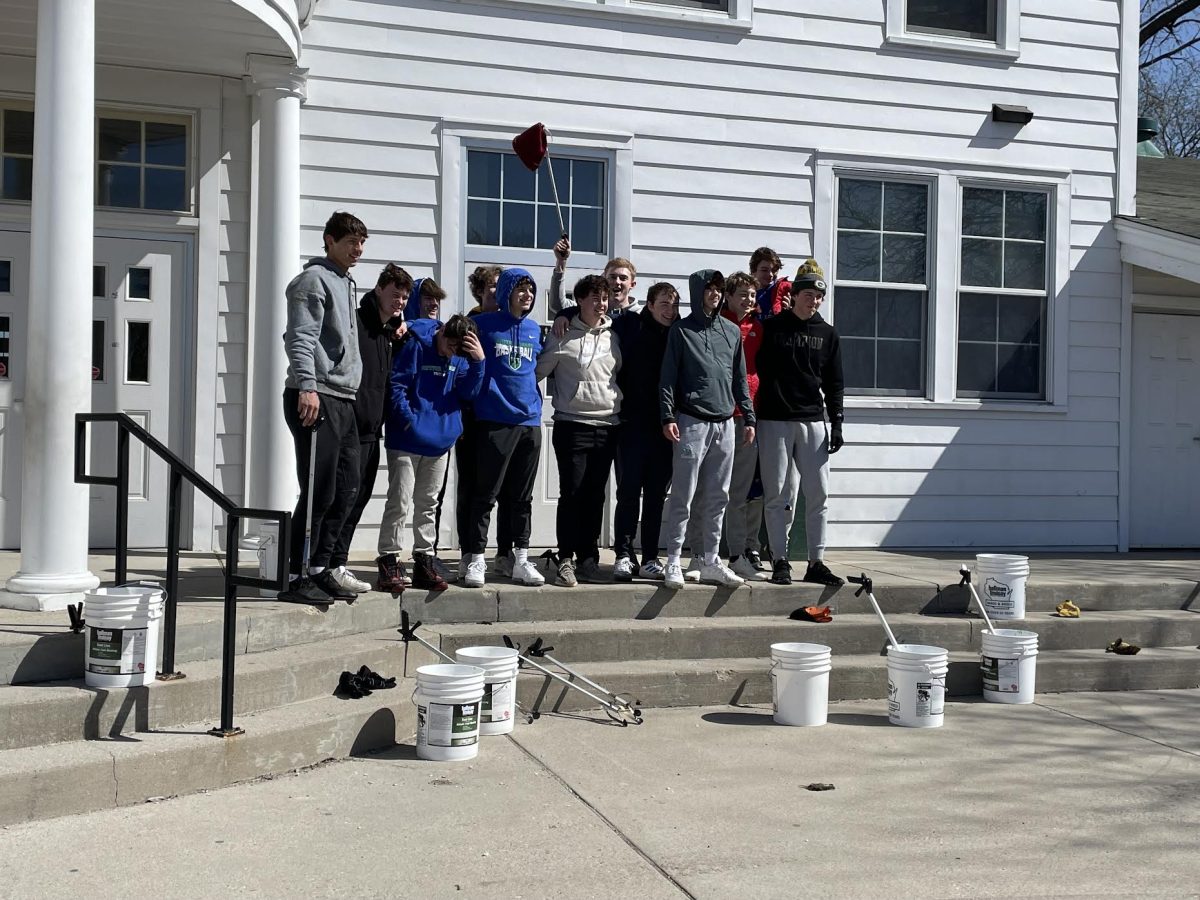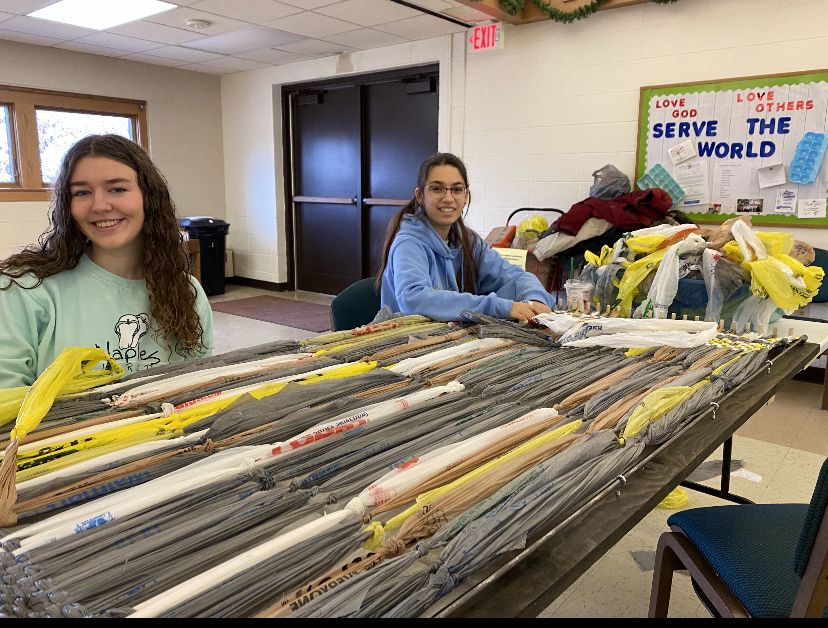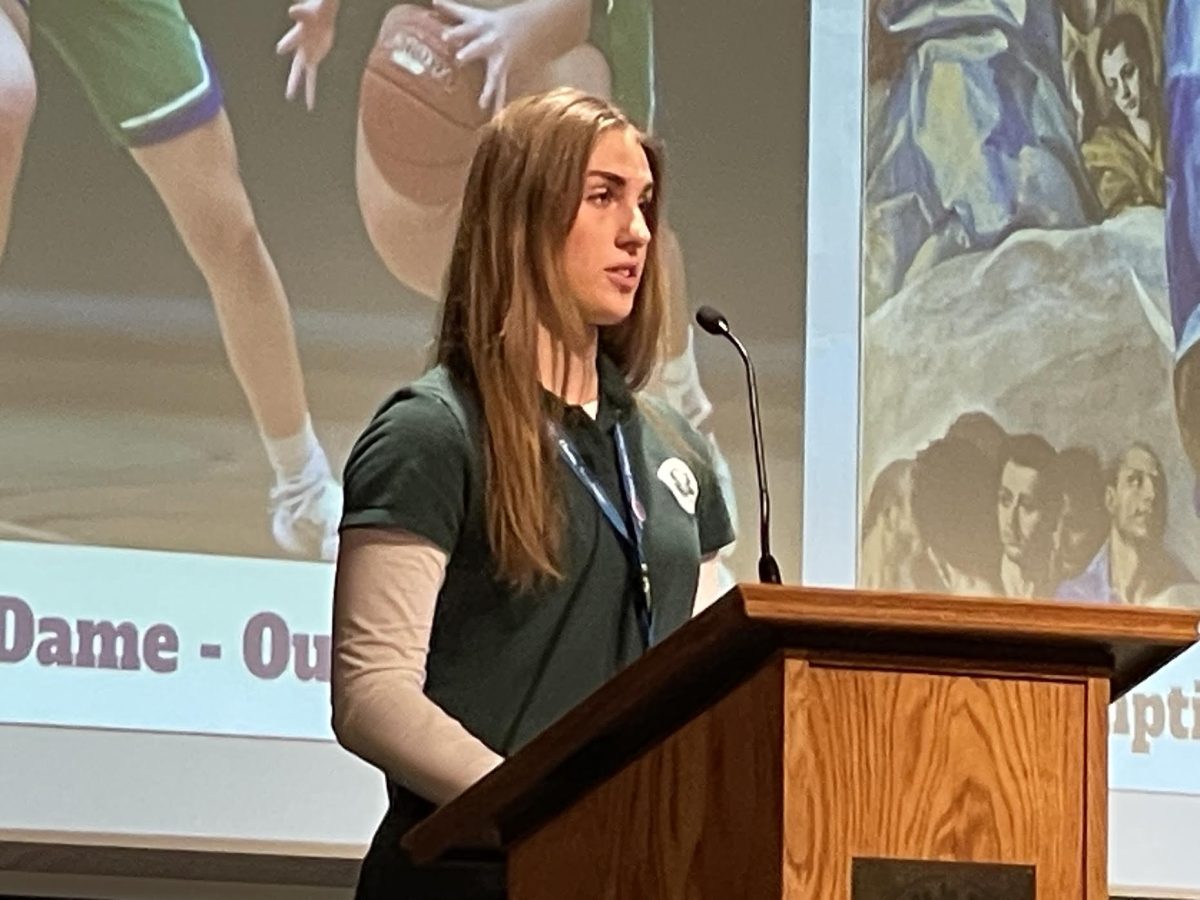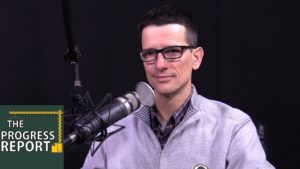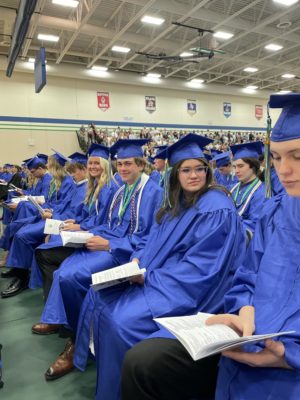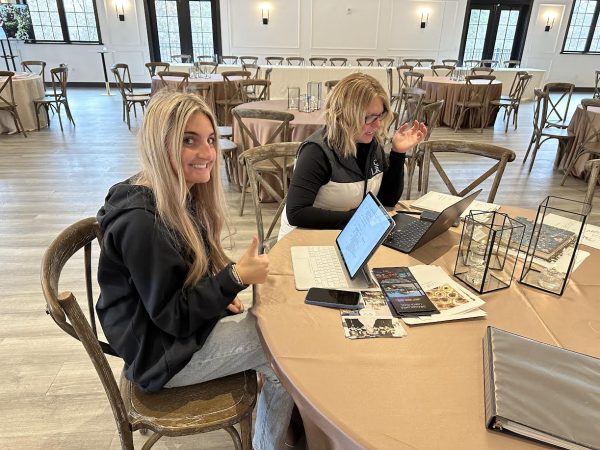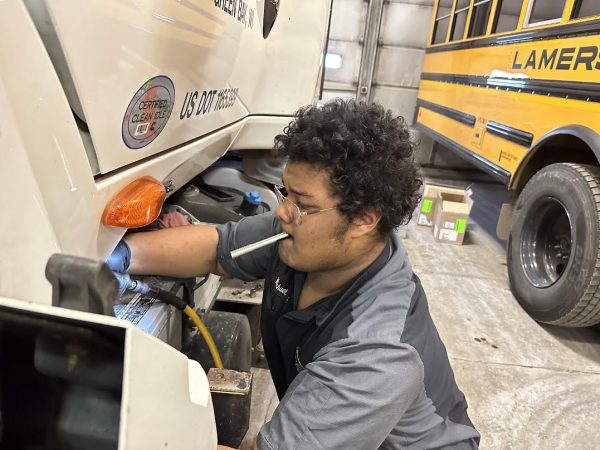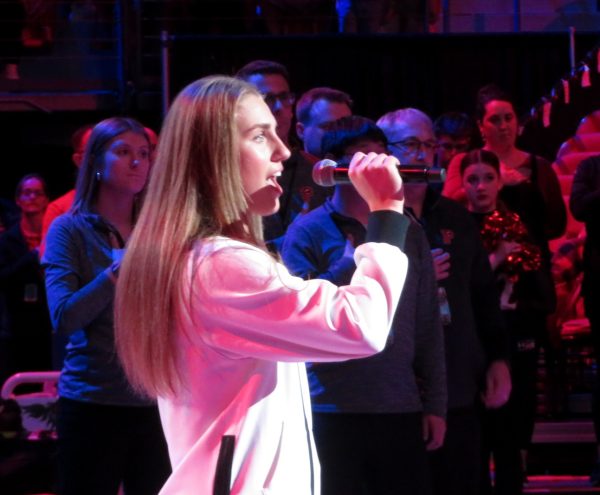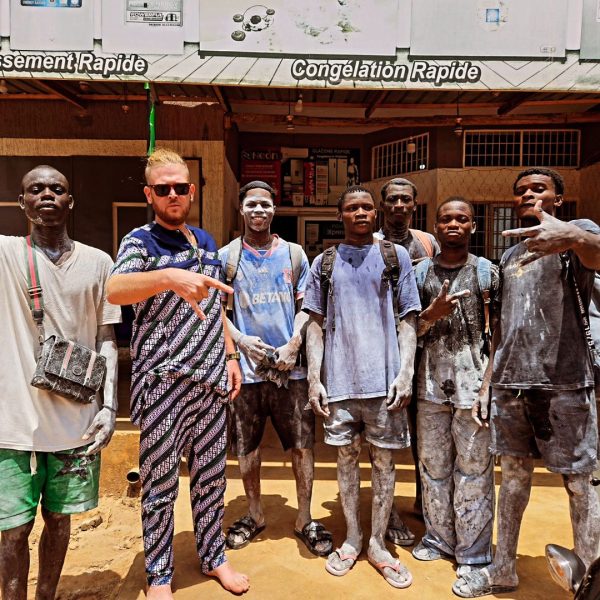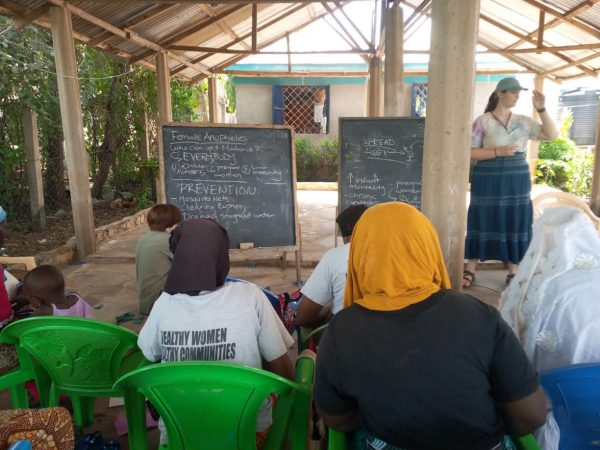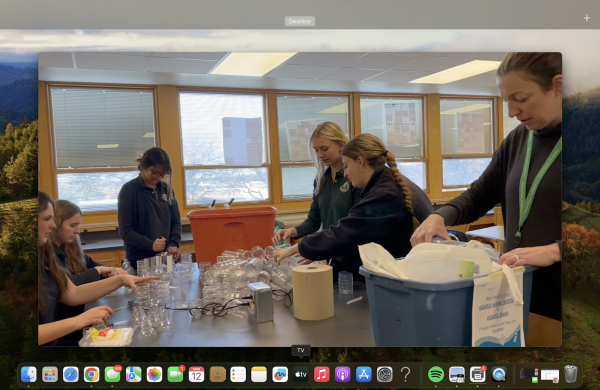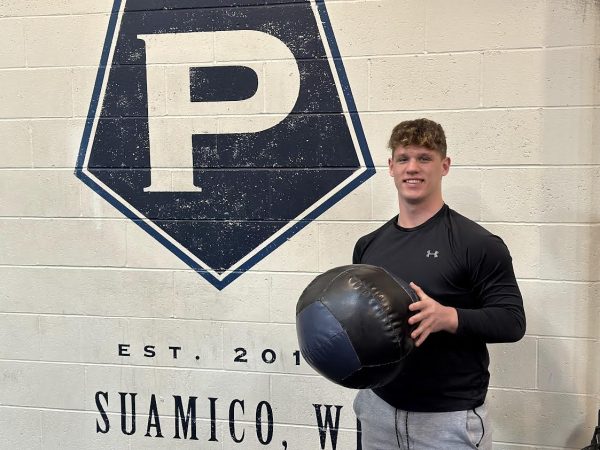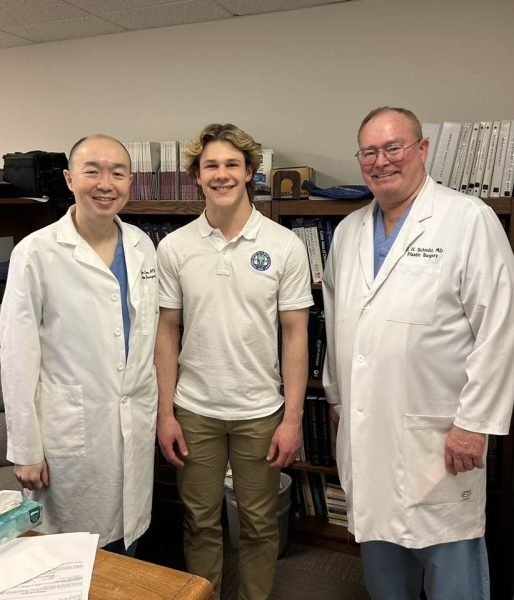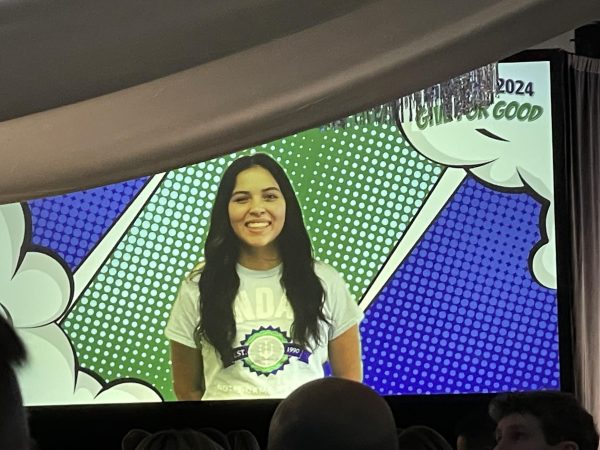Q & A with Campus Minister Daniel Kriegl
March 28, 2015
Q: Where did your religious background start?
A: My father is a practicing Roman Catholic. He took me to mass every Sunday. My mother, on the other hand, does not practice any formal religion. She fears institutionalized religion a lot and values free thinking and independence. Although she believed Jesus died for our sins, she does not practice any religious faith.
Q: How did this affect you growing up?
A: I grew up in Catholic schools, and my father took us to mass, but I was never super involved in the Church in any formal way like being a server. As I grew up watching both of my parents, it seemed like, and this sounds weird, my mom was a more worldly person. She valued what you guys would describe as fun, but she always seemed to have more stress and seemed to get into more worldly issues and concerns.
My dad always seemed to have a shield and always seemed to be happy and joyful, so I tended to lean towards that, that this faith stuff was worthwhile. He always seemed to be young at heart, too. He played games with us, and he was just like a little kid. Even to this day he greets my dog. Overall he just seemed happier; he had more joy than my mom when it came down to it.
Q: What is your educational background?
A: I went to private catholic schools my entire life. I graduated from Catholic Memorial High School, and then I went to St. Norbert College. I looked at the University of Notre Dame and UW-Madison, but I chose St. Norbert because the University of Notre Dame rejected me flat out for not having enough service and not meeting other credentials. Madison seemed a little too big so I chose St. Norbert because I was interested in business, and they said they had a good business and economic school. I went into St. Norbert as a business major and economics minor.
There some crazy things happened, and I ended up majoring in religious studies and minoring in philosophy along with getting a secondary education certificate. I also did student teaching sophomore and junior blocks. After college, I went to Arizona until I decided to come back and get my Master’s Degree from SNC in 2013 in Theological Studies.
Q: What made you switch from a major in business to religious studies?
A: That was a long journey, but my first year that I attended St. Norbert College, they forced you to take an Intro to Theology class. My professor was really strict, and he gave everyone bad grades at first, and he would force you to talk to him after class. He made religion not just fluffy or abstract; he made it very concrete and real. He challenged me to live my faith a lot more everyday.
It changed me so much; it made my life finally meaningful. I thought, ‘Why didn’t anyone ever teach me this in high school? Why didn’t anyone ever teach it this way or present the faith this way?’ Then I might have taken it more seriously rather than just feeling like religion was something to make you feel good or something you grow out of when you get older. When I took his class, there was a lot more substance and meaning to it all. So I thought maybe I could go into some places and do what he did for me.
Q: Have you ever considered the priesthood?
A: I have considered the priesthood a few times, and I am still open to it. I may end up becoming a priest someday, but I have a very personal relationship with Christ especially after my four years in Arizona. I feel like I can sense and read signs, and I can feel that he tugs me and takes me to places that I need to be. I always had a conviction to be in the place and have a status in life that would let me impact the most people as possible. If I became a priest, I would have to take a Vow of Obedience to the Bishop, which, if they need parish priests, I’d be running a parish. I couldn’t just decide to get up and leave and teach in Nashville or Arizona. I wouldn’t have that freedom to really feel like Christ is calling me somewhere.
On top of that, I don’t like that people think that the call to holiness is only for priests, sisters, nuns or campus ministers. I’m trying to send the message that all the laity are called to more holy lives. All the laity should be going to daily mass. All the laity should be praying more and living lives that are like priests. So far I haven’t felt called to be a priest, but I have felt called to preach the Gospel.
Also, when I am ministering with kids, I think that I am more approachable without a collar. Some people wouldn’t feel like I am approachable. They probably wouldn’t talk to me or feel like I am open-minded. I’d have to say certain things, so that freedom and the ability to impact as many people as possible right now is stronger if I am a lay person; I can reach more people. The Vow of Obedience is difficult when you feel this intimate and real connection with Christ. If you take the Vow of Obedience you have to do what the Bishop tells you, and if he tells you to start a parish in Nowhere, Wisconsin, that is where you are going. I don’t feel like God is calling me to that context yet.
Q: How much time do you spend studying Scripture, praying or doing other religious activities?
A: Well, some of you may not be aware of this, but I attend daily mass. At the mass, you actually go through the Scriptures. They follow it day by day, so that is one way I study Scripture.
I also have my own personal Bible that I’ve had for years. In high school, I opened it up for the first time in study hall, and I pretended like I was doing homework because I was embarrassed that I was just reading the Bible for fun, and I thought that everyone would judge me. So I pretended like I was doing religious homework, but I ended up reading Proverbs, Ecclesiastes, Sirach and some of the Wisdom books, and then I got to the Gospels.
That changed my life so much, and since then, I have decided to read the Gospels every single year. I pray every Friday that I keep the Gospel on my mind, on my lips, and always in my heart so that I may know, preach and live the Gospel. So unless I read it every single year, how could I do that? I pray every night; sometimes it’s a short prayer for five minutes and sometimes it can get up to 15-20 minutes. I TOMG, which most people know the T means giving thanks for things that happened to me that day, O is for thinking and praying for others, M is for myself and mercy, which is when I get greedy, and ask for mercy, G is for guidance in my life and for God to reveal his plan for me. So, I pray that every single night.
Q: Why do you value exercise?
A: I believe that the habits we create build character, and we become the habits we form. Ever since high school, I played three sports, and I have worked out a lot. I try to maintain that our bodies are the greatest gift and instrument God has ever given us. I believe we have a responsibility to take care of it in the best way that we can. Exercise relieves stress, and it helps me clear my head. I always do sets in Holy numbers; 12, 3, 7, 40, 8, so I always try to keep God present when I am working out. That’s why I like to work out by myself because it’s a prayerful time. It’s another way I worship God, by taking care of myself through exercise.
Q: Do you ever hope to coach?
A: In Arizona, I coached baseball and football, and I loved it. The only thing I value about coaching nowadays in my old age is that it is a way to reach young men. That is one part about my vocation that I am still waiting to cultivate more here or go to some other place to do. I feel like it is a great pulpit, and people have a different respect for you when they call you Coach. I know from my four years in Arizona with the young men I coached there that I could help them on their faith journey so much more because I was that person called Coach.
I certainly have passions for the sports, the people that know me know I am competitive, but it’s more just the opportunity to bring God’s grace and develop the character of young men. I would like to coach more sports, but again, it doesn’t really matter what sport it is as much as that I can reach young men, and hopefully I am somewhat savvy in the sport that I coach.
Q: What is your favorite thing about being Campus Minister?
A: I was a teacher for four years before I became a campus minister, so this is my first job as campus minister. However at the last school, the principal always wanted me to be the Campus Minister because she saw that I connected with the kids. The number one thing that I love about Campus Ministry is that I am everyone’s Campus Minister. Every single freshman, sophomore, junior and senior can hopefully view me as approachable, and if they have an issue they know where to go.
Going on retreats is a highlight, and service trips to Chicago and Canton are some of my absolute favorite things. To actually not just talk and preach about faith, but as a campus minister you actually get to live the faith. As a teacher, it seems like people are just teaching, but me I am actually inviting the kids–we’re doing the service; we are walking to stand up for the sanctity of life on the 40 Days for Life. There’s a more authentic lifestyle that I think attracts people about Campus Ministry that maybe as a teacher you don’t get when you are just getting the academic side of things.
Q: What is your least favorite thing about being Campus Minister?
A: The thing I like the least about being Campus Minister is that there is more paperwork and administrative work I have to do. It’s also not just me in a classroom, and I’d say that now I am a more public figure. The number one thing I learned at Notre Dame is that everyone can do my job better than me. When you do something that everyone can see, everyone has a critique whether it’s all school Mass, something you said, a prayer, etc. Since you’re on display all the time, everyone has an opinion about what you are doing. When you are in your own classroom, you don’t have anyone there to critique you. Here, everyone has an opinion about what you do, and you don’t get that private setting. I have to answer a few more questions than I would if I was just a teacher and deal with a few more people about different things.


